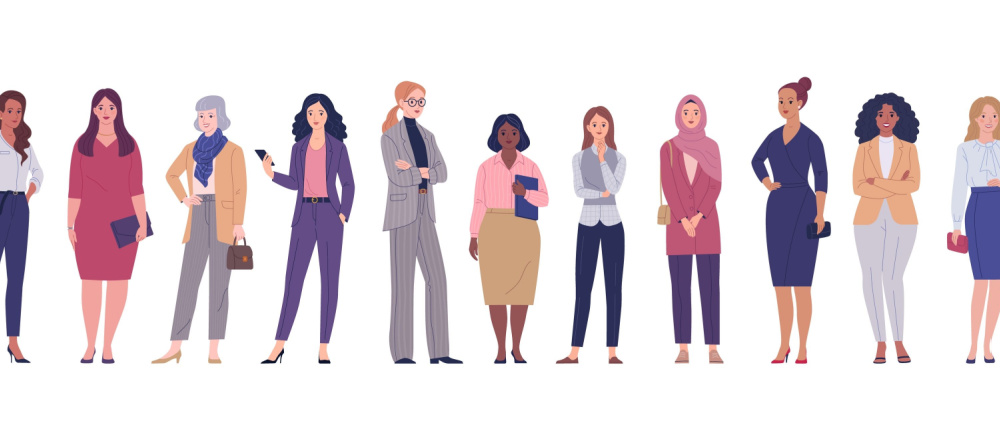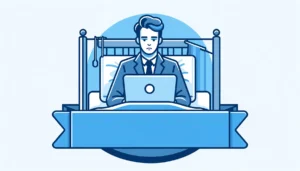Break the silence: Tackling menopause and menstruation taboos in the workplace
- 6 Min Read
Despite being facts of life for nearly half the workforce, menopause and menstruation are still not adequately discussed. Successfully navigating these topics is essential to any competent diversity, equity and inclusion (DEI) strategy.
- Author: Natal Dank
- Date published: Mar 8, 2023
- Categories

As a senior HR leader, I want to break the silence and remove the stigma around the ‘M’ taboos – menopause and menstruation in the workplace.
This goal is one of the top HR trends we highlighted for 2023 at the HR Trend Institute and PXO Culture, because despite being facts of life for nearly half the workforce, menopause and menstruation are still not adequately discussed. In addition, successfully navigating these topics is essential to any competent diversity, equity and inclusion (DEI) strategy.
It’s all about equity
At a recent HR conference, the audience responded to my talk on menopause and menstruation in the workplace with enthusiastic applause. Even more surprising were Millennials and Gen-Z people thanking me for speaking openly about these topics. I’d assumed these had become non-issues for younger generations, but silence, stigma, and lack of rapport continue.
Menstruation impacts about half the workforce. However, 74% of those people feel it necessary to hide period products at work, and 60% feel uncomfortable discussing the topic with colleagues or managers. Awareness and education are essential. Most men I’ve spoken with say they need more information to engage in an open and objective conversation about these topics.
Regarding DEI, ‘M’ taboos relate to the equity component and recognize that we do not all start from the same societal position. It acknowledges the need to address this power imbalance for everyone to access the same opportunities in life. Intimately connected with diversity and inclusion, equity concedes that even with greater representation and voice, certain groups and minorities are disadvantaged through traditional processes, policies and systems. Menstruation and menopause can significantly impact how people think, feel and act in the workplace, leaving them less able to perform on certain days. By supporting people in these situations, we’re not discriminating against other groups but rather leveling the playing field.
Watch a short 1-minute summary of this trend here.
Menopause and senior women
Women my age are the fastest-growing demographic in the workplace, and many of us also hold important senior roles vital to workplace diversity. We must break the’ M’ taboos if we want to keep this valuable resource. Not only are there potential impacts on productivity, but many people of this demographic have little choice but to leave a role, and menopause-related issues can create barriers to a return to work. In the UK one in 10 women quit their position because of menopause. Apart from the human aspect, this can significantly impact an organization’s business.
I recently hit the start of perimenopause, which significantly impacted my work until I made positive lifestyle changes to help [ed: with support from her amazing but humble partner]. Accessing information about what was happening to my body was transformative. Once I understood the science behind what was happening, I felt more able to make choices to help myself. For example, I used Louise Newson’s [https://balance-menopause.com] symptoms list for her excellent book “Preparing for the Perimenopause and Menopause”, to start a dialogue with my local GP.
To paraphrase a recent chat with a senior leader female leader, ‘I experienced brain fog and emotional swings due to hormonal fluctuations that impacted my performance. Once I understood what was happening, I could source natural remedies and be back on form within a month or two. But no one told me about this or warned me to watch out for the signs. Why did I have to figure it out on my own?’
Why cite menopause and menstruation as a trend in 2023?
Many countries in the EU and, to a lesser extent, the UK, are making some progress on menopause-related policy and education. Organizations like the National Trust, Diageo, BBC, AstraZeneca, Tesco and Lloyds Bank are making similar moves and more discussion around menstrual leave and menstruation is happening. Scotland has even made period products free to tackle period poverty, an issue for many workers, particularly during a cost-of-living crisis. Making period products available in the workplace or to take home goes a long way to help employees.
We recently ran a LinkedIn Live webinar on our top 9 HR trends for 2023, including menopause and menstruation in the workplace. Reactions were overwhelmingly positive, and we were encouraged that many men joined the conversation, which is crucial for change. Someone highlighted the usefulness of remote work and flexible working hour policies for people dealing with period pain, hot flashes or sleep deprivation. However, we also hear the rallying cry of the need to do more. As one participant commented, “Why should women have to silently suffer or feel ashamed of things that are naturally occurring phases of life?”.
Disappointingly, the UK recently rejected a proposal recognizing menopausal workplace rights. This decision included the refusal to pilot menopausal leave, a huge missed opportunity to take an experimental, evidence-based approach to policy.
But don’t let this stop you in your organization. Prototyping is how we’d suggest you instigate such a program and make progress in your workplace. Get data by running short-term experiments where you test a policy or a specific benefit and compile evidence of what will likely have a positive impact.
What action can organizations take around menopause and menstruation?
Practical examples of how we can achieve more open discussions on menstruation and menopause include:
- Information sessions and awareness campaigns.
- Training and support for managers.
- Update health and wellbeing policies.
- Provide free period products in the workplace.
- Consider menstrual or menopause leave.
- Have senior female leaders share their own experiences.
Menopause, menstruation and the future
As with any controversial topic, progress starts with creating an open public dialogue. Senior leaders need to share their own stories and be ready to listen to the stories of others.
So far, our feedback suggests that most people are glad we are finally discussing these issues. We must continue down this path because, contrary to what some might say, the evidence is that addressing the lack of support and rights for one group enhances the wellbeing of all.
The ‘M’ taboos is just one of 9 top HR trends we’ve identified for 2023. You can watch Natal Dank and Tom Haak discussing all the trends here.









